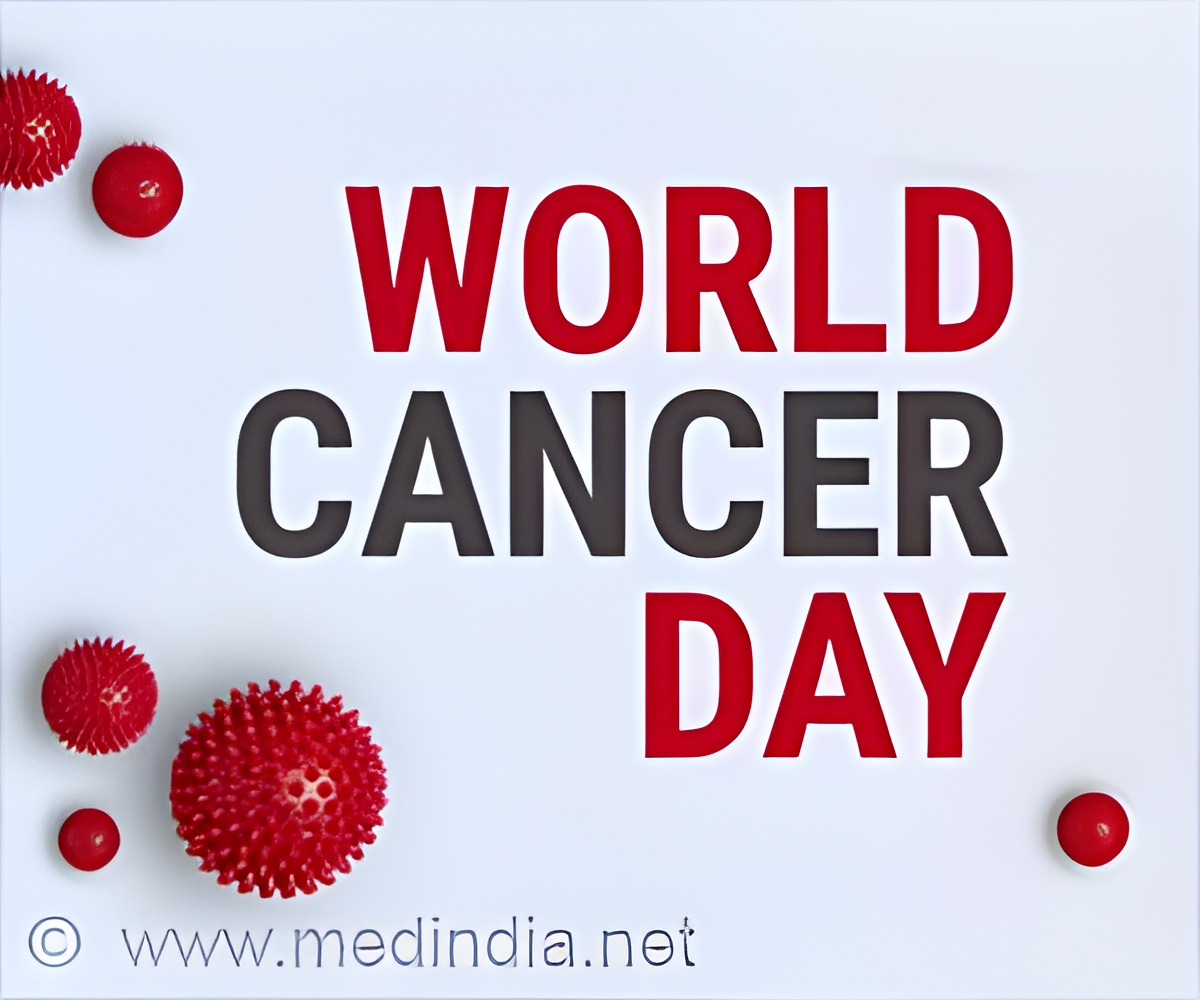World Cancer Day observed on February 4th annually aims to raise cancer awareness, and encourage public about cancer prevention, detection, and treatment.

‘Globally, cancer is the second leading cause of mortality. In 2020, an estimated 9.9 million deaths have been reported.
’





An estimated one third of cancer deaths globally are due to tobacco use, high body mass index, alcohol use, low fruit and vegetable intake, and lack of physical activity. The WHO called for collective action to provide prompt treatment referral, to enhance access to palliative care, and to close the gap in access to quality cancer services -- the theme of this year's commemoration.
World Cancer Day 2023
In the WHO Southeast Asia region, an estimated 2.3 million people developed cancer in 2020, and 1.4 million died of the disease.Cancer is estimated to account for more than 20 percent of premature mortality from non-communicable diseases (NCDs) in the region, which stand at around 4.7 million deaths every year.
In 2020, cancer of the lungs, breast and cervix accounted for 4,00,000 of the total number of cancer-related deaths in the region, and almost two-thirds of people diagnosed with cancer succumbed to the disease, highlighting the urgent need for improved early diagnosis and treatment.
WHO Regional Director for Southeast Asia, Poonam Khetrapal Singh, said that since 2014, the region has accelerated action to prevent, detect, treat and control cancer, with increased focus on eliminating cervical cancer as a public health problem.
Advertisement
"WHO continues to support countries of the Region to implement its new Regional Action Plan on Oral Health 2022-2030, including oral cancers, which in 2020 were among the top five most common cancers, accounting for 7.4 percent of new cancers. Five countries of the region -- Bhutan, India, Myanmar, Sri Lanka and Thailand -- now have in place national cancer control plans, which Maldives and Nepal are in the process of finalizing. The Region is currently on track to achieve the WHO NCD Global Action Plan target of a 30 percent relative reduction in tobacco use prevalence between 2010 and 2025."
Advertisement
Bhutan, Maldives, Myanmar, Sri Lanka and Thailand have introduced nation-wide HPV vaccination, which Bangladesh, India and Timor-Leste are also set to launch.
Indonesia has introduced HPV vaccination in several provinces, covering tens of millions of girls. New evidence shows that a single dose of HPV vaccine delivers protection comparable to the 2-dose schedule, which alongside additional cost reductions, should enable countries to reach every woman and girl.
Talking about accelerating the progress to close the care gap, Singh pointed out several priorities for the region like introducing and expanding HPV vaccination in routine immunization to prevent cervical cancer.
Secondly, she opined increasing capacity at the primary health care (PHC) level to detect cancers early with a focus on intensified health workforce training.
Third, rapidly, and systematically, advancing the capacity of tertiary care facilities to provide comprehensive diagnostic and treatment services that is critical to reduce cancer mortality. Fourth, to include the cancer services in risk pooling or pre-payment schemes and health benefit packages.
"In the last two decades, the world has made significant progress in the science of cancer control. However, much more work is needed to close the care gap, improve cancer survival, and accelerate towards the NCD 2025 and Sustainable Development Goal targets 2030," she added.
Source-IANS













